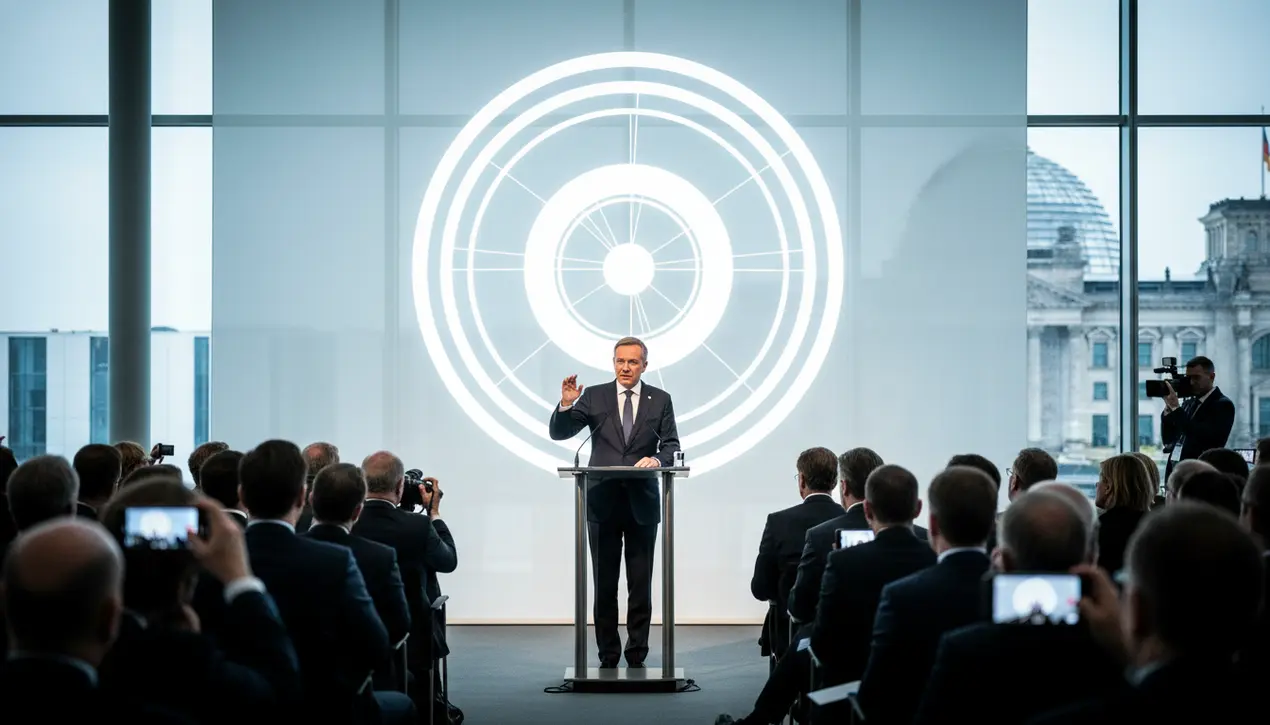
Politicssanctions & trade
Germany to Exclude Huawei from Future 6G Networks.
RO
Robert Hayes
3 hours ago7 min read1 comments
In a decisive move echoing the geopolitical realignments reshaping global technology infrastructure, German Chancellor Friedrich Merz has declared that Chinese suppliers, most notably Huawei Technologies, will be systematically excluded from the nation's future telecommunication networks, including the nascent 6G standard, on unequivocal security grounds. This strategic pivot, announced at a Berlin business conference, marks a significant escalation in Europe's cautious decoupling from Chinese technological dependence and represents a robust push for what Merz termed 'digital sovereignty.' The Chancellor's statement, 'We have decided within the government that everywhere it’s possible we’ll replace components, for example in the 5G network, with components we have produced ourselves,' signals a profound policy shift from the more ambiguous stance of previous administrations, which had permitted Huawei's involvement in non-core parts of the 5G network despite intense pressure from Washington. This decision did not materialize in a vacuum; it is the culmination of years of fraught debate within the German security apparatus, mirroring a broader Western anxiety over the potential for state-backed espionage and systemic vulnerabilities embedded within critical infrastructure supplied by firms subject to China's 2017 National Intelligence Law.The historical parallel is starkly reminiscent of the Cold War-era technological bifurcation, where Western and Soviet blocs developed parallel, incompatible systems. Today, the schism is digital, pitting a US-led coalition wary of Beijing's influence against China's own ambitions to dominate next-generation technologies.Experts from the German Council on Foreign Relations point to this as a watershed moment for the European Union's strategic autonomy, forcing a costly but necessary reckoning with supply chain security. The immediate consequence will be a complex, multi-billion-euro undertaking to 'rip and replace' existing Huawei components from the 5G network, a logistical nightmare for telecom operators like Deutsche Telekom and Vodafone Germany, who now face immense capital expenditure and potential rollout delays.For the global 6G race, this exclusion effectively sidelines one of the world's most prolific telecom equipment makers from one of its largest and most technologically advanced markets, potentially fracturing the development of a unified global standard and accelerating the formation of separate technological spheres. While bolstering national security, this move also carries significant economic risks, including potential retaliatory measures from Beijing against German automotive and industrial giants whose fortunes are deeply tied to the Chinese market.The long-term strategic calculus, however, appears to prioritize security over short-term economic convenience, a lesson hard-learned from Europe's over-reliance on Russian energy. As Germany marshals its industrial and research might toward developing indigenous 6G capabilities, this policy sets a powerful precedent, likely encouraging other EU member states to follow suit and fundamentally reshaping the transatlantic technology alliance against a backdrop of intensifying great-power competition.
#Germany
#Huawei
#6G network
#ban
#security
#digital sovereignty
#featured
Stay Informed. Act Smarter.
Get weekly highlights, major headlines, and expert insights — then put your knowledge to work in our live prediction markets.
Comments
Loading comments...
© 2025 Outpoll Service LTD. All rights reserved.